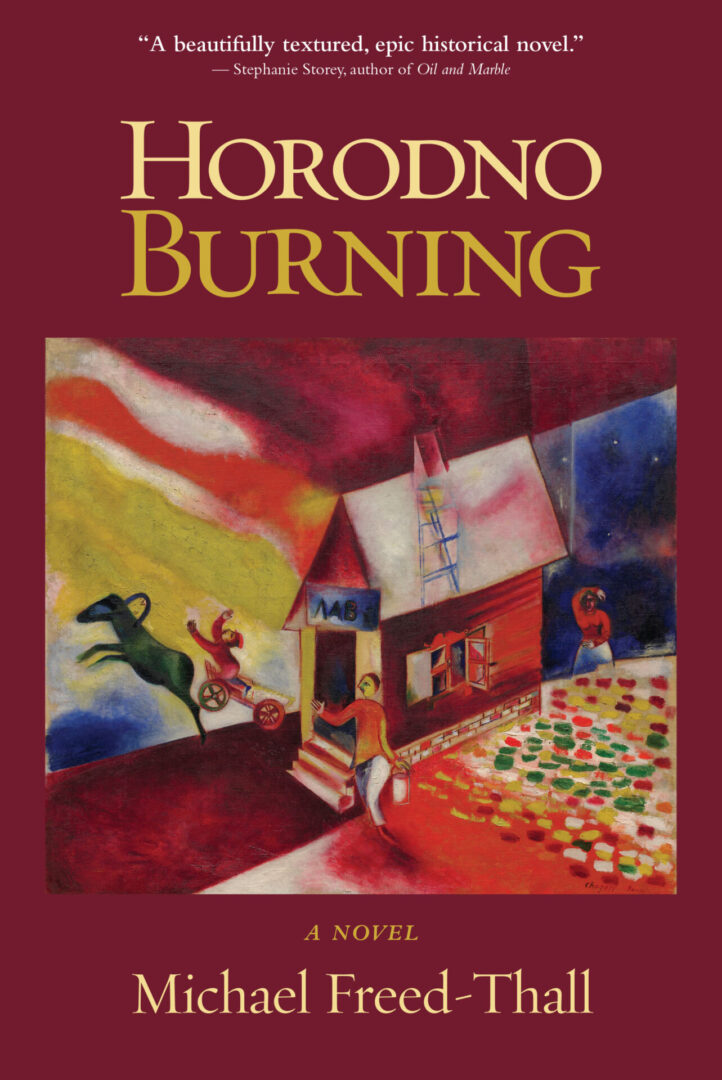About
Horodno Burning
Between 1881 and 1914, one-and-a-half million Jews emigrate from the Russian Empire to America. The vast majority never look back. Repression, revolutionary upheaval, and starvation beat down any inclination towards nostalgia for the old country, even though some, like my protagonists Esther and Bernard, have roots there from the fourteenth century. In the 1860s, they grow up in Horodno, a market town alongside the Neiman River.
About the Author
Michael Freed-Thall published Horodno Burning in 2021. It won the gold medal for historical
fiction in the Human Relations Indie Book Awards, and the novel was a finalist for the
Independent Publishers of New England genre fiction prize.
Horodno Burning started with pieces of family history: an arranged marriage, escape from
service in the czar’s army, pogroms, a harrowing trip from the Pale of Settlement to America, a
reverence for books, and radical politics. Ultimately those fragments led him to write a novel
about two people who fall in love during harrowing times, despite their religious, educational,
and political differences.
Before turning to writing full time, Michael worked for thirty years in Vermont schools as a
teacher and principal. He and his wife, Patricia, built their house in Vermont’s Green Mountains
and raised two children. When he’s not off hiking with their dog, cutting next winter’s firewood,
or pulling weeds in the garden, you can find him working on his next novel.

